Hungry Wild Elephants In Vietnam Go On Rampage
Groups of hungry wild elephants are raiding farms and hurting their tame counterparts in the process.
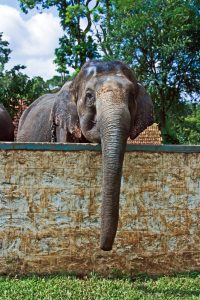
Added to the threat of extinction, wild elephants in Vietnam are facing another equally distressing problem: Lack of food.
In a number of provinces in the country, there have been several clashes between wild elephants and their domesticated kind. Every one of these clashes has been as a result of the wild herds searching for food. As at the last count, at least five such clashes occurred over the past few months especially from March to August 2017.
Particularly disturbing was the most recent fight where a herd with seven wild elephants attacked and injured two tame elephants. The incident occurred at Forest Management Station No. 6 in Yok Don National Forest. The wild animals usually number between six and seven individuals at a time. They typically approach forest ranger stations and residential areas in search of food. But in the process, they end up attacking the domestic ones.
In another incident, they injured seven tame animals and killed one in Krong Na commune, in the Buon Don district.
This problem could become more serious as these wild elephants keep coming closer to human settlements. It may be just a matter of time before humans are hurt too.
Wild elephants in Vietnam currently number just about 100 individuals.
Factors Contributing To The Tame And Wild Elephants Clash.
Like many of Asia’s Wild Elephants, the ones in Vietnam face several pressures most of which can be directly linked to human activities.
1) Shrinking and degrading wild elephants habitat.
The historic and natural habitats of these giant creatures are continuously taken over by humans. For instance, in the Dak Lak Province where many of these attacks took place, large expanses of virgin forest have been converted to farmland.
This kind of human encroachment invariably leads to shortage of food in the wild as the forest vegetation declines. After some time, wild elephants will move towards human habitations for food. Eventually, more human-elephant conflicts and wild-domestic animal conflict happen.
After all, the wild elephants must eat one way or another.
2) Plantations near the elephants.
We all know elephants are very large creatures; the largest terrestrial mammals on Earth today. Consequently, they need vast expanses of land to thrive.
However, experts estimate that human encroachment into the forests of Vietnam have reduced elephant space from about 50,000 hectares back in the 1990s to under 30,000 hectares today.
In addition, much of these “stolen” land is converted to plantations: Food the elephants would like to get at.
So, what happens in this kind of scenario?
Of course the elephants will find their way down to the plantations to feed and there’s very little local farmers can do to stop a herd of wild hungry elephants.
In the Dinh Quán district, wild elephants are known for destroying crops and assets. In fact, the issue of plantations near the elephants’ natural habitat is a serious problem there.
To reduce such conflicts, the Dong Nai province had to embark on an a major electric fencing project that will separate local plantations from the animals.
Unfortunately, when a herd of wild elephants enters a plantation to feed, they don’t do so “nicely.” They end up destroying thousands of trees and crops leading to colossal losses for the farmers.
3) Fallout of the dry season.
Another reason for lack of food in the forests is the effects of dry season. One farmer in the Thanh Sơn commune, reportedly lost over 400 banana trees in just one night of rampaging by a wild herd.
While, they were in his farm, the elephants (numbering 12) also removed cashew trees and destroyed several property including water tanks and water pipes.
In the same area, another farmer lost the entire three hectares of his crops, including 1,500 banana trees, 300 pepper trees, and 20 jackfruit trees to six wild elephants.
These raids started since early February and have affected almost 30 farmers so far. The herd has about 12 to 15 animals and carry out their raids at night. Though they don’t hurt human beings in the vicinity.
4) Musth
Apart from hunger, these wild elephants could be so aggressive to their tame counterparts because they are in a state of “musth.” This is a periodic condition occurring only in male elephants. During musth, the bulls display very aggressive behavior largely because of the sudden rise in the reproductive hormone testosterone.
If that’s the case, then they would be highly inclined to hurt other males for the right to mate with the females.
Tame elephants in Dak Lak number just 43 at present and there have been no calves born to captive female elephants there in 30 years. Many of the females are no longer fertile.
Steps To Protect Both Tame And Wild Elephants
Only about 100 wild elephants remain in Vietnam, so authorities are particularly careful about protecting them from vengeful farmers.
Therefore, there are measures already in place to mitigate the effects of some of these conflicts.
For instance, there are now local guards that watch and blow whistles or set fire to frighten approaching wild elephants away.
Also, forest rangers actively work to inform locals on the need preserve rather than hurt the elephants. Specifically, farmers should desist from the use of electric current, poison, and explosives to kill the hungry animals
On the part of the Vietnamese Government, there are several policies and projects already being implemented in this regard. For example:
- A master plan for preserving elephant herds that will run from 2013 to 2020.
- In December 2016, the WWF collaborated with Vietnamese authorities to implement an emergency project aimed at protecting the biggest herd of elephants in the country from extinction.
- The Ministry of Planning and Investment also approved the sum of VND 74 billion (USD $3.28 million) for urgent protection of wild elephant herds in Đồng Nai Province. The project aims to assess elephant populations and plan how to expand their habitat.
Meanwhile, to reduce the wild-domestic elephant conflicts, tame elephant owners and tourism businesses have been directed to keep their elephants from wandering into areas where wild herds are usually spotted.
In addition to that, they are to stop chaining their tame animals out in the forest in the evenings and take them home instead.
But, just protecting the tame elephants may appear like treating the symptoms rather the illness. More emphasis should be on expanding the elephants habitats.

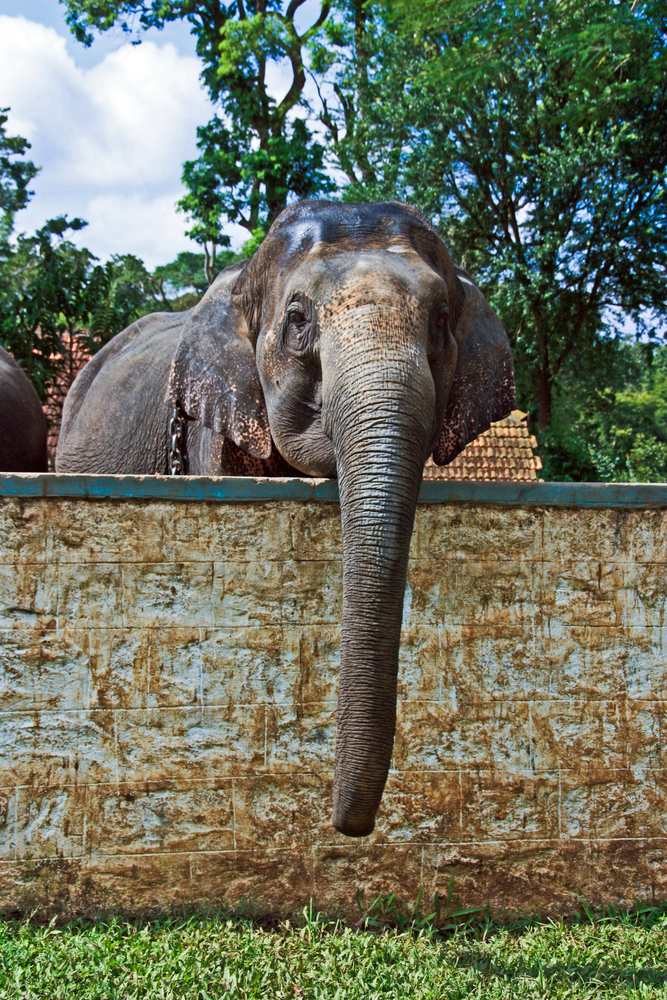

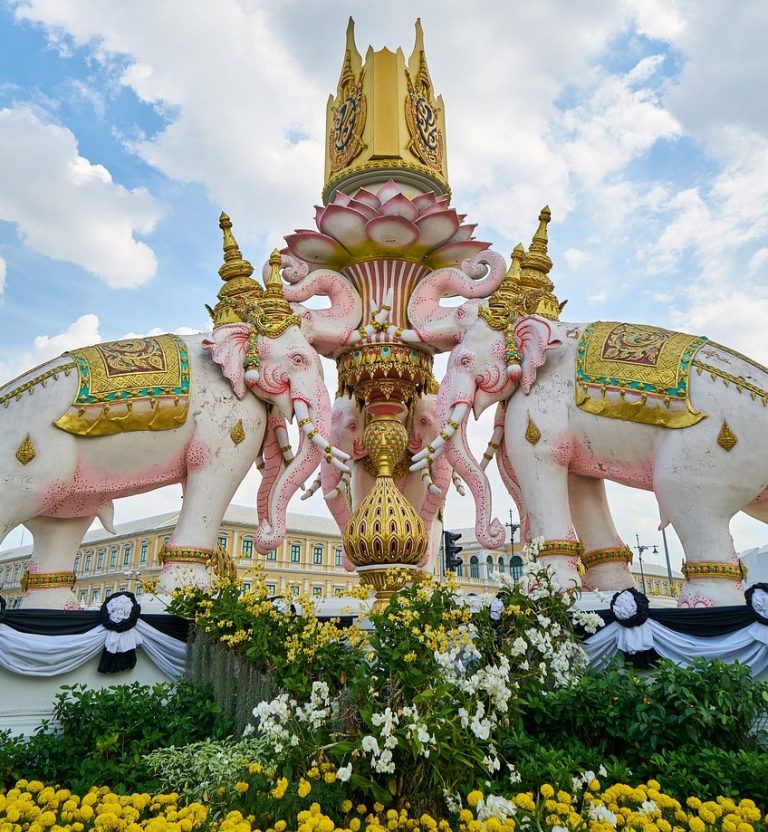
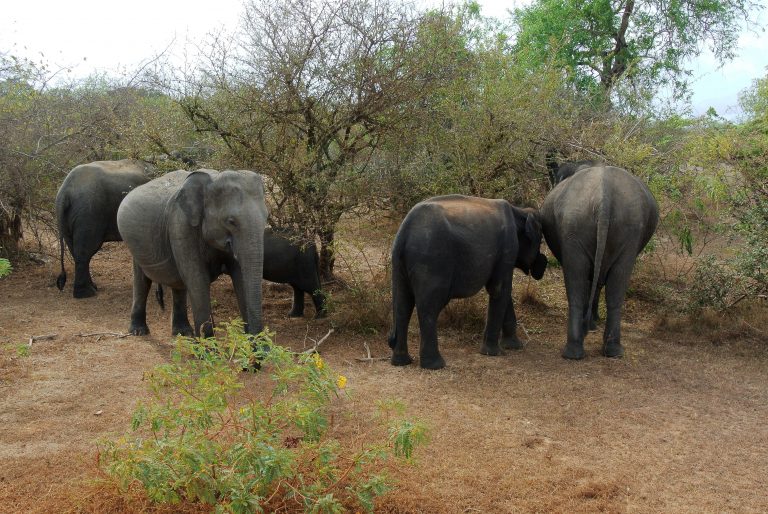
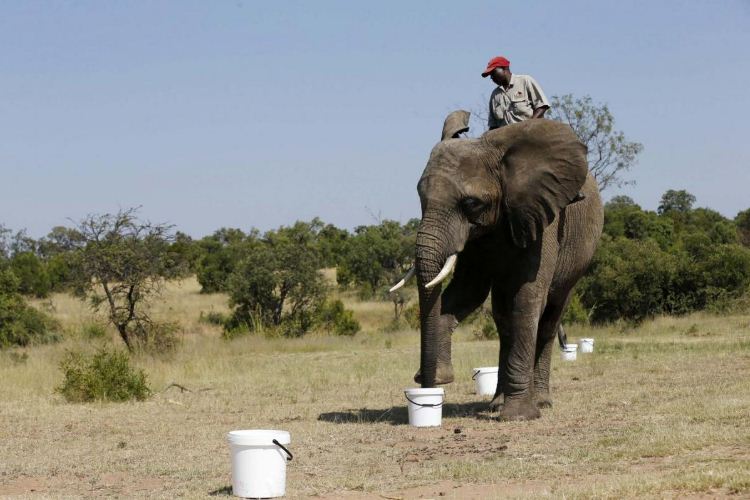
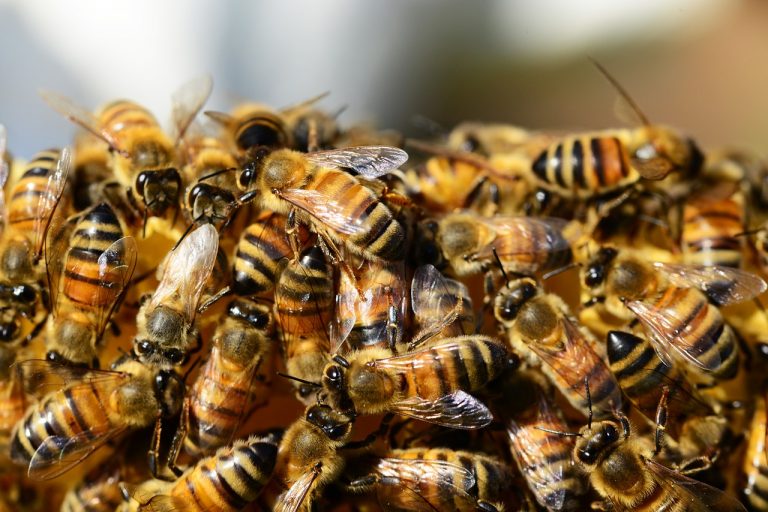
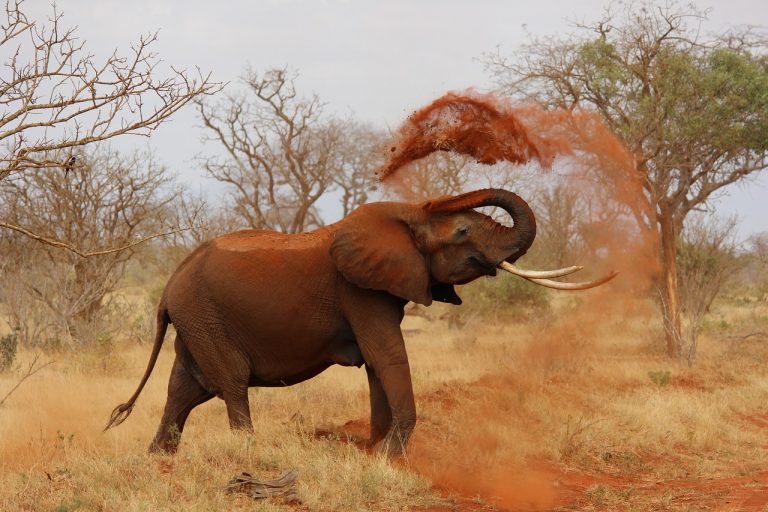
Land should be set aside for these diminishing animals, people should practice birth contro